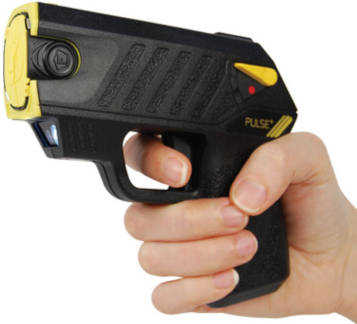As we age, maintaining independence and safety becomes increasingly important. For senior citizens, the ability to defend oneself can provide a crucial sense of security. However, choosing the right self-defense tool can be overwhelming. This article aims to guide you through the process of selecting and evaluating self-defense tools specifically tailored for seniors.

Image Credit Goes to Self Defence Mall
Understanding the Challenges Faced by Seniors
Before diving into self defence tools, it’s essential to acknowledge the unique challenges seniors face. Physical limitations, reduced mobility, and potential health conditions can impact the effectiveness of certain self-defense options. Therefore, when selecting self defence tools, it’s crucial to choose products that are easy to use, require minimal physical exertion, and provide maximum protection. This ensures that the tools not only meet the specific needs of seniors but also offer reliable safety and peace of mind.
The Importance of Self-Defense Training
While self-defense tools can be valuable assets, they are most effective when combined with proper training. Learning basic self-defense techniques can empower seniors to confidently handle various threatening situations. Consider enrolling in a self-defense class specifically designed for older adults. These classes often focus on practical skills, situational awareness, and de-escalation strategies.
Evaluating Self-Defense Tools for Seniors
When selecting a self-defense tool, several factors should be considered:
- Ease of Use: The tool should be simple to operate, even under stress.
- Portability: A compact and lightweight tool is ideal for carrying on a daily basis.
- Legality: Ensure the tool is legal to possess and use in your jurisdiction.
- Effectiveness: The tool should be capable of deterring or incapacitating an attacker.
- Maintenance: Consider the tool’s durability and the required maintenance.
Popular Self-Defense Tools for Seniors
- Personal Alarms:
- A personal alarm is a non-lethal device that emits a loud sound when activated, attracting attention and deterring attackers.
- Pros: Easy to use, lightweight, and affordable.
- Cons: Relies on the element of surprise and may not be effective against determined attackers.
- Pepper Spray:
- Pepper spray is a temporary incapacitant that causes intense burning sensations in the eyes, nose, and mouth.
- Pros: Effective deterrent, compact, and relatively easy to use.
- Cons: Can affect the user if not used correctly, and its effectiveness can be reduced by wind conditions.
- Tasers:
- Tasers guns deliver an electrical shock that temporarily incapacitates an attacker.
- Pros: Can be effective at stopping an attack, and some models are designed for seniors.
- Cons: Requires precise aiming, can be expensive, and legality varies by state.
- Stun Guns:
- Similar to Tasers, stun guns deliver an electrical shock but are typically less powerful.
- Pros: Easier to aim than Tasers, generally less expensive.
- Cons: May not be as effective as Tasers, and legality varies by state.
- Walking Sticks and Canes:
- While primarily used for mobility, these can also be used as defensive tools.
- Pros: Easily accessible, can be used for balance and support.
- Cons: Limited effectiveness against determined attackers, and improper use can cause injury.
- Personal Safety Devices:
- These devices, such as GPS trackers and medical alert systems, can provide additional safety measures.
- Pros: Can help locate you in case of emergency, provide peace of mind.
- Cons: May not deter an attacker directly.
Choosing the Right Tool for You
The best self-defense tool for you depends on your individual needs, preferences, and physical abilities. Consider the following factors:
- Lifestyle: Do you frequently walk alone at night? Do you live in a high-crime area?
- Physical Limitations: Are you able to use pepper spray with good aim? Can you wield a walking stick effectively?
- Budget: Self-defense tools vary in price.
- Legal Considerations: Check the laws in your state regarding self-defense tools.
Training and Practice
Regardless of the self-defense tool you choose, it’s essential to receive proper training. Practice using your tool in a safe environment to build confidence and proficiency. Regular practice can help you react quickly and effectively in a threatening situation.
Additional Safety Tips
- Be Aware of Your Surroundings: Pay attention to your environment and trust your instincts.
- Avoid Isolated Areas: When possible, walk with a friend or family member.
- Carry a Cell Phone: Keep your phone charged and easily accessible.
- Take Self-Defense Classes: Learn valuable techniques to protect yourself.
Remember, the best self-defense tool is often prevention. By being aware of your surroundings and taking precautions, you can significantly reduce the risk of becoming a victim.
Conclusion
Seniors can enhance safety through careful selection and use of self-defense tools. Consider personal alarms, pepper spray, tasers, stun guns, walking sticks, or personal safety devices based on ease of use, legality, and personal needs. Training is essential to maximize tool effectiveness. Remember, situational awareness, avoiding isolated areas, and carrying a phone are crucial preventive measures. Always prioritize safety and legality, consulting local experts when necessary.
Disclaimer: This article provides general information and should not be considered legal or professional advice. It’s essential to consult with local law enforcement and experts for guidance specific to your situation.

